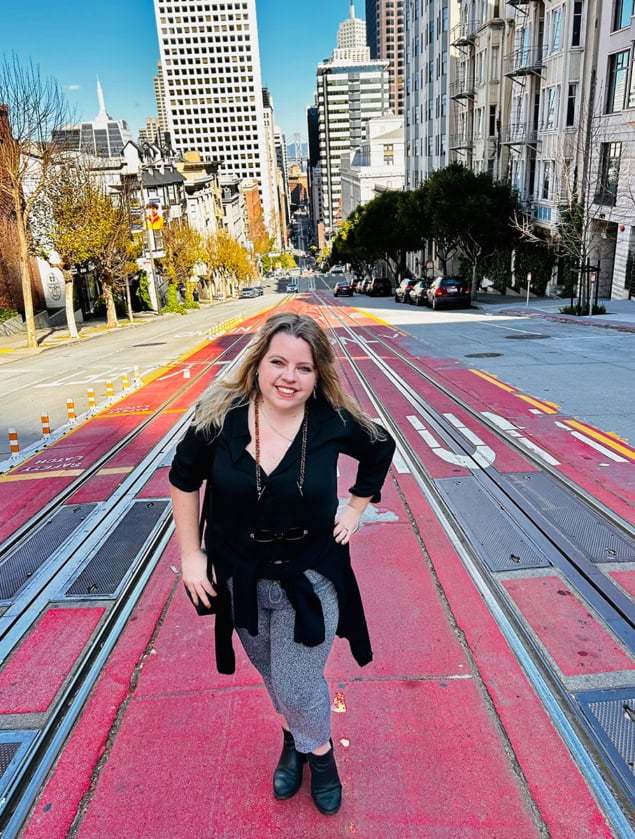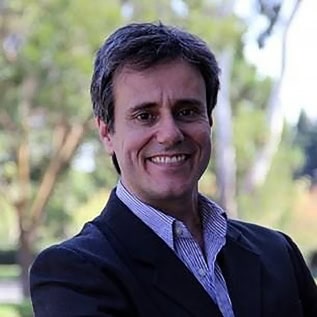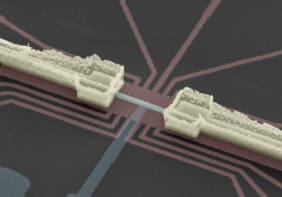Quantum experts Abbie Bray, Araceli Venegas-Gomez and Mark Elo give their advice for interviews, choosing the right PhD programme and managing risk and reward in the emerging quantum industry

It’s official: after endorsement from 57 countries and the support of international physics societies, the United Nations has officially declared that 2025 is the International Year of Quantum Science and Technology (IYQ).
The year has been chosen as it marks the centenary of Werner Heisenberg laying out the foundations of quantum mechanics – a discovery that would earn him the Nobel Prize for Physics in 1932. As well as marking one of the most significant breakthroughs in modern science, the IYQ also reflects the recent quantum renaissance. Applications that use the quantum properties of matter are transforming the way we obtain, process and transmit information, and physics graduates are uniquely positioned to make their mark on the industry.
It’s certainly big business these days. According to estimates from McKinsey, in 2023 global quantum investments were valued at $42bn. Whether you want to build a quantum computer, an unbreakable encryption algorithm or a high-precision microscope, the sector is full of exciting opportunities. With so much going on, however, it can be hard to make the right choices for your career.
To make the quantum landscape easier to navigate as a jobseeker, Physics World has spoken to Abbie Bray, Araceli Venegas-Gomez and Mark Elo – three experts in the quantum sector, from academia and industry. They give us their exclusive perspectives and advice on the future of the quantum marketplace; job interviews; choosing the right PhD programme; and managing risk and reward in this emerging industry.
Quantum going mainstream: Abbie Bray
According to Abbie Bray, lecturer in quantum technologies at University College London (UCL) in the UK, the second quantum revolution has broadened opportunities for graduates. Until recently, there was only one way to work in the quantum sector – by completing a PhD followed by a job in academia. Now, however, more and more graduates are pursuing research in industry, where established companies such as Google, Microsoft and BT – as well as numerous start-ups like Rigetti and Universal Quantum – are racing to commercialize the technology.

While a PhD is generally needed for research, Bray is seeing more jobs for bachelor’s and master’s graduates as quantum goes mainstream. “If you’re an undergrad who’s loving quantum but maybe not loving the research or some of the really high technical skills, there’s other ways to still participate within the quantum sphere,” says Bray. With so many career options in industry, government, consulting or teaching, Bray is keen to encourage physics graduates to consider these as well as a more traditional academic route.
She adds that it’s important to have physicists involved in all parts of the industry. “If you’re having people create policies who maybe haven’t quite understood the principles or impact or the effort and time that goes into research collaboration, then you’re lacking that real understanding of the fundamentals. You can’t have that right now because it’s a complex science, but it’s a complex science that is impacting society.”
So whether you’re a PhD student or an undergraduate, there are pathways into the quantum sector, but how can you make yourself stand out from the crowd? Bray has noticed that quantum physics is not taught in the same way across universities, with some students getting more exposure to the practical applications of the field than others. If you find yourself in an environment that isn’t saturated with quantum technology, don’t panic – but do consider getting additional experience outside your course. Bray highlights PennyLane, which is a Python library for programming quantum computers, that also produces learning resources.
Consider your options
Something else to be aware of, particularly for those contemplating a PhD, is that “quantum technologies” is a broad umbrella term, and while there is some crossover between, say, sensing and computing, switching between disciplines can be a challenge. It’s therefore important to consider all your options before committing to a project and Bray thinks that Centres for Doctoral Training (CDTs) are a step in the right direction. UCL has recently launched a quantum computing and quantum communications CDT where students will undergo a six-month training period before writing their project proposal. She thinks this enables them to get the most out of their research, particularly if they haven’t covered some topics in their undergraduate degree. “It’s very important that during a PhD you do the research that you want to do,” Bray says.
When it comes to securing a job, PhD position or postdoc, non-technical skills can be just as valuable as quantum know-how. Bray says it’s important to demonstrate that you’re passionate and deeply knowledgeable about your favourite quantum topic, but graduates also need to be flexible and able to work in an interdisciplinary team. “If you think you’re a theorist, understand that it also does sometimes mean looking at and working with experimental data and computation. And if you’re an experimentalist, you’ve got to understand that you need to have a rigorous understanding of the theory before you can make any judgements on your experimentation.” As Bray summarises: “theorists and experimentalists need to move at the same time”.
The ability to communicate technical concepts effectively is also vital. You might need to pitch to potential investors, apply for grants or even communicate with the HR department so that they shortlist the best candidates. Bray adds that in her experience, physicists are conditioned to communicate their research very directly, which can be detrimental in interviews where panels want to hear narratives about how certain skills were demonstrated. “They want to know how you identified a situation, then you identified the action, then the resolution. I think that’s something that every single student, every single person right now should focus on developing.”
The quantum industry is still finding its feet and earlier this year it was reported that investment has fallen by 50% since a high in 2022. However, Bray argues that “if there has been a de-investment, there’s still plenty of money to go around” and she thinks that even if some quantum technologies don’t pan out, the sector will continue to provide valuable skills for graduates. “No matter what you do in quantum, there are certain skills and experiences that can cross over into other parts of tech, other parts of science, other parts of business.”
In addition, quantum research is advancing everything from software to materials science and Bray thinks this could kick-start completely new fields of research and technology. “In any race, there are horses that will not cross the finish line, but they might run off and cross some other finish line that we didn’t know existed,” she says.
Building the quantum workforce: Araceli Venegas-Gomez
While working in industry as an aerospace engineer, Araceli Venegas-Gomez was looking for a new challenge and decided to pursue her passion for physics, getting her master’s degree in medical physics alongside her other duties. Upon completing that degree in 2016, she decided to take on a second master’s followed by a PhD in quantum optics and simulation at the University of Strathclyde, UK. By the time the COVID-19 pandemic hit in 2020, she had defended her thesis, registered her company, and joined the University of Bristol Quantum Technology Enterprise Centre as an executive fellow.

It was during her studies at Strathclyde that Venegas-Gomez decided to use her vast experience across industry and academia, as well as her quantum knowledge. Thanks to a fellowship from the Optica Foundation, she was able to launch QURECA (Quantum Resources and Careers). Today, it’s a global company that helps to train and recruit individuals, while also providing business development advice for for both individuals and companies in the quantum sphere. As founder and chief executive of the firm, her aims were to link the different stakeholders in the quantum ecosystem and to raise the quantum awareness of the general public. Crucially, she also wanted to ease the skills bottleneck in the quantum workforce and to bring newcomers into the quantum ecosystem.
As Venegas-Gomez points out, there is a significant scarcity of skilled quantum professionals for the many roles that need filling. This shortage is exacerbated by the competition between academia and industry for the same pool of talent. “Five or ten years ago, it was difficult enough to find graduate students who would like to pursue a career in quantum science, and that was just in academia,” explains Venegas-Gomez. “With the quantum market booming, industry is also looking to hire from the same pool of candidates, so you have more competition, for pretty much the same number of people.”
Slow progress
Venegas-Gomez highlights that the quantum arena is very broad. “You can have a career in research, or work in industry, but there are so many different quantum technologies that are coming onto the market, at different stages of development. You can work on software or hardware or engineering; you can do communications; you can work on developing the business side; or perhaps even in patent law.” While some of these jobs are highly technical and would require a master’s or a PhD in that specific area of quantum tech, there are plenty of roles that would accept graduates with only an MSc in physics or even a more interdisciplinary experience. “If you have a background in physics and business, everyone is looking for you,” she adds.
From what she sees in the quantum recruitment market today, there is no job shortage for physicists – instead there is a dearth of physicists with the right skills for a specific role. Venegas-Gomez explains that graduates with a physics degree in many fields have transferable skills that allow them to work in “absolutely any sector that you could imagine”. But depending on the specific area of academia or industry within the quantum marketplace that you might be interested in, you will likely require some specific competences.
As Bray also stated, Venegas-Gomez acknowledges that the skills and knowledge that physicists pick up can vary significantly between universities – making it challenging for employers to find the right candidates. To avoid picking the wrong course for you, Venegas-Gomez recommends that potential master’s and PhD students speak to a number of alumni from any given institute to find out more about the course, and see what areas they work in today. This can also be a great networking strategy, especially as some cohorts can have as few as 10–15 students all keen work with these companies or university departments in the future.
Despite the interest and investment in the quantum industry, new recruits should note that it is is still in its early stages. This slow progress can lead to high expectations that are not met, causing frustration for both employers and potential employees. “Only today, we had an employer approach us (QURECA) saying that they wanted someone with three to four years’ experience in Python, and a bachelor’s or master’s degree – it didn’t have to be quantum or even physics specifically,” reveals Venegas-Gomez. “This means that [to get this particular job] you could have a background in computer science or software engineering. Having an MSc in quantum per se is not going to guarantee that you get a job in quantum technologies, unless that is something very specific that employer is looking for.”
So what specific competencies are employers across the board looking for? If an company isn’t looking for a specific technical qualification, what happens if they get two similar CVs for the same role? Do they look at an applicant’s research output and publications, or are they looking for something different? “What I find is that employers are looking for candidates who can show that, alongside their academic achievements, they have been doing outreach and communication activities,” says Venegas-Gomez. “Maybe you took on a business internship and have a good idea of how the industry works beyond university – this is what will really stand out.”
She adds that so-called soft-skills – such as demonstrating good leadership, teamwork, and excellent communication skills – are very valued. “This is an industry where highly skilled technical people need to be able to work with people vastly beyond their area of expertise. You need to be able to explain Hamiltonians or error corrections to someone who is not quantum-literate and explain the value of what you are working on.”
Venegas-Gomez is also keen that job-seekers realize that the chances of finding a role at a large firm such as Google, IBM or Microsoft are still slim-to-none for most quantum graduates. “I have seen a lot of people complete their master’s in a quantum field and think that they will immediately find the perfect job. The reality is that they likely need to be patient and get some more experience in the field before they get that dream job.” Her main advice to students is to clearly define their career goals, within the context of the booming and ever-growing quantum market, before pursuing a specific degree. The skills you acquire with a quantum degree are also highly transferable to other fields, meaning there are lots of alternatives out there even if you can’t find the right job in the quantum sphere. For example, experience in data science or software development can complement quantum expertise, making you a versatile and coveted contender in today’s job market.
Approaching “quantum advantage”: Mark Elo
Last year, IBM broke records by building the first quantum chip with more than 1000 qubits. The project represents millions of dollars of investment and the company is competing with the likes of Intel and Google to achieve “quantum advantage”, which refers to a quantum computer that can solve problems that are out of reach for classical machines.
Despite the hype, there is work to be done before the technology becomes widespread – a commercial quantum computer needs millions of qubits, and challenges in error correction and algorithm efficiency must be addressed.

“We’re trying to move it away from a science experiment to something that’s more an industrial product,” says Mark Elo, chief marketing officer at Tabor Electronics. Tabor has been building electronic signal equipment for over 50 years and recently started applying this technology to quantum computing. The company’s focus is on control systems – classical electronic signals that interact with quantum states. At the 2024 APS March Meeting, Tabor, alongside its partners FormFactor and QuantWare, unveiled the first stage of the Echo-5Q project, a five-qubit quantum computer.
Elo describes the five years he’s worked on quantum computing as a period of significant change. Whereas researchers once relied on “disparate pieces of equipment” to build experiments, he says that the industry has changed such that “there are [now] products designed specifically for quantum computing”.
The ultimate goal of companies like Tabor is a “full-stack” solution where software and hardware are integrated into a single platform. However, the practicalities of commercializing quantum computing require a workforce with the right skills. Two years ago the consultancy company McKinsey reported that companies were already struggling to recruit, and they predicted that by 2025, half of the jobs in quantum computing will not be filled. Like many in the industry, Elo sees skills gaps in the sector that must be addressed to realize the potential of quantum technology.
Elo’s background is in solid-state electronics, and he worked for nearly three decades on radio-frequency engineering for companies including HP and Keithley. Most quantum-computing control systems use radio waves to interface with the qubits, so when he moved to Tabor in 2019, Elo saw his career come “full circle”, combining the knowledge from his degree with his industry experience. “It’s been like a fusion of two technologies” he says.
It’s at this interface between physics and electronic engineering where Elo sees a skills shortage developing. “You need some level of electrical engineering and radio-frequency knowledge to lay out a quantum chip,” he explains. “The most common qubit is a transmon, and that is all driven by radio waves. Deep knowledge of how radio waves propagate through cables, through connectors, through the sub-assemblies and the amplifiers in the refrigeration unit is very important.” Elo encourages physics students interested in quantum computing to consider adding engineering – specifically radio-frequency electronics – courses to their curricula.
Transferable skills
The Tabor team brings together engineers and physicists, but there are some universal skills it looks for when recruiting. People skills, for example, are a must. “There are some geniuses in the world, but if they can’t communicate it’s no good in an industrial environment,” says Elo.
Elo describes his work as “super exciting” and says “I feel lucky in the career and the technology I’ve been involved in because I got to ride the wave of the cellular revolution all the way up to 5G and now I’m on to the next new technology.” However, because quantum is an emerging field, he thinks that graduates need to be comfortable with some risk before embarking on a career. He explains that companies don’t always make money right now in the quantum sector – “you spend a lot to make a very small amount”. But, as Elo’s own career shows, the right technical skills will always allow you to switch industries if needed.
Like many others, Elo is motivated by the excitement of competing to commercialize this new technology. “It’s still a market that’s full of ideas and people marketing their ideas to raise money,” he says. “The real measure of success is to be able to look at when those ideas become profitable. And that’s when we know we’ve crossed a threshold.”



